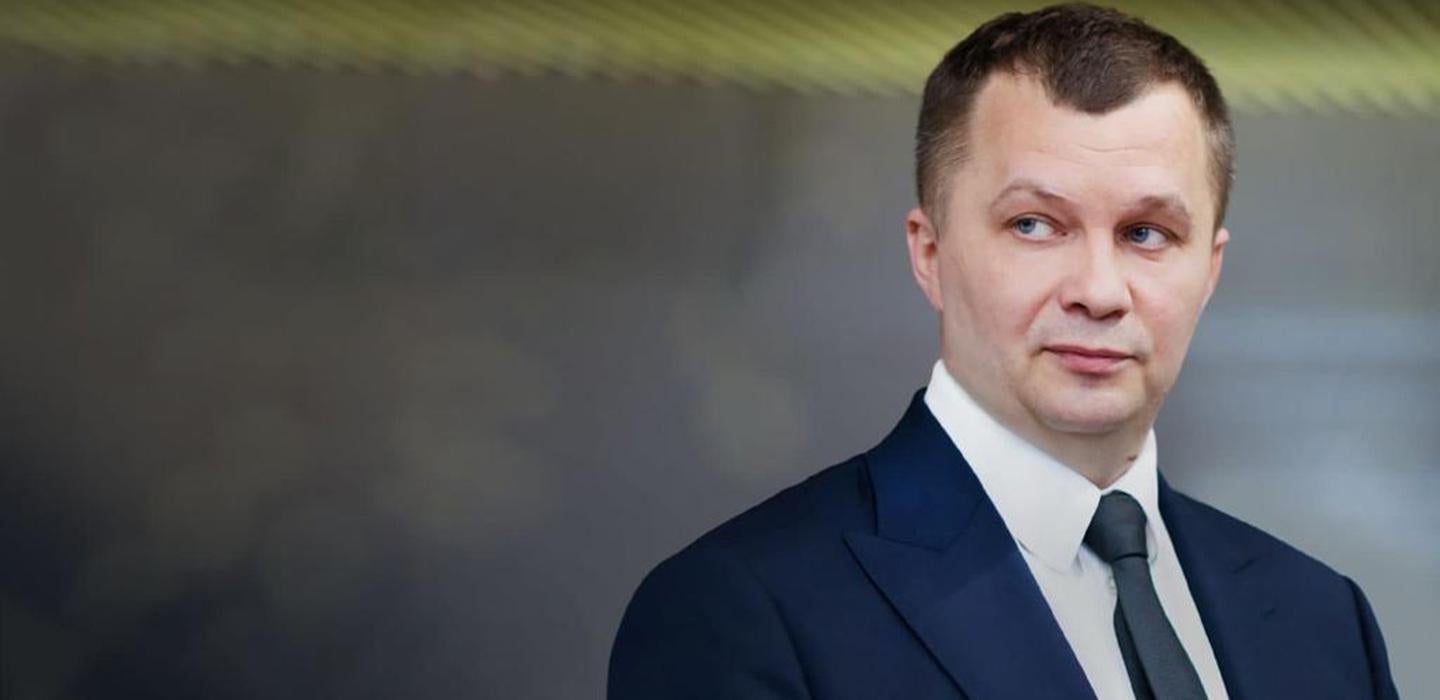
Subscribe to Pittwire Today
Get the most interesting and important stories from the University of Pittsburgh.Tymofiy Mylovanov, an associate professor of economics in Pitt's Kenneth P. Dietrich School of Arts and Sciences, returned to his native Ukraine to be with his family before the war started there a month ago.
As the country’s former minister of economic development, trade and agriculture, Mylovanov continues to advise the office of President Volodymyr Zelenskyy on economic issues, and until recently, he was still teaching courses at Pitt.
To combat the spread of disinformation, Mylovanov has been sharing firsthand accounts with news outlets to provide insights into what's happening on the ground. Additionally, during a fundraiser with the Kyiv School of Economics, he successfully raised more than $800,000 in under 24 hours to aid humanitarian efforts in Ukraine.
Pittwire interviewed Mylovanov on March 18 again to understand what's happened since since we talked with him in February.
[Scenes in Ukraine, from a Pitt economics professor]
What’s happening on the ground?
It depends on your definition of “on the ground.” If we talk about Mariupol, it's been destroyed. If we talk about the south of Ukraine, it's a difficult terrain to defend. So, [Russia and Belarus] are making some significant advances, but not much. Some of the troops moved back by 5 miles or so, at least in the east of Kyiv. That's from eyewitness accounts. I have some friends there, but it gets volatile. Lyiv was bombed this morning from the airport to the area around the airport.
What's the state of those around you?
People are adjusting, working to figure out things, what they're going to do, what's happening with their jobs and the war economy. Essentially, the shock is over, and now it's kind of business as usual.
So, morale remains high even amid the circumstances?
Why should it be low? It's painful that people die. It's tragic and hurtful, awful, and we all cry, but we are forced to live in this.
Can you speak to the sacrifices of everyday people volunteering to defend Ukraine?
I'm not sure about sacrifices; it's now normal for us, and we’ve all made our choices. Some people leave, some people have to go, but everyone is trying to help in their role. So, at this point, we're not talking about sacrifice; we're talking about the awful reality.
You have to experience it to understand what it means — that Russia threatens the democratic way of life. I woke up because ballistic missiles were landing in Kyiv. It's not about Ukraine; it's not about any conflict or logic. It's about the principle that you can bomb a different country. And if this principle is applied to a country, it will be applied to other countries. And whether a country is a member of NATO or not, that is secondary to the threat coming from Russia.
I want the West to do more to stop this threat together with us. We are fighting for our lives. People are not going to die in the West, and Russia is not going to get emboldened because it's going to be stopped in Ukraine. But it will be done through the price of Ukrainian lives. It's all great on the news, but in practice, there is bureaucracy, and sometimes we get stuck with basic supplies sitting on European customs for two days because someone didn't sign some regulation because it's a weekend.
From your perspective as an economist, how can countries minimize Putin’s offensive?
Financial sanctions have a medium-term effect. If you poison a person slowly and don't give the person water or food, it will have an effect, but it will not be immediate. It's going to take months, sometimes years. Therefore, it can only be a complementary mechanism, but we want the pressure to generate an immediate reaction, economic pain, expectations, management.
However, it's naive to think that Putin or the Russian society will respond to the sanctions or say, “I’m sorry, we were wrong. We shouldn’t have bombed children and pregnant mothers and invaded other countries.” No, they will say, “You see? That proves us correct,” and I think that's the rhetoric we hear from Moscow — that the bad guys are the West for escalating. Russia will be selling its propaganda to the public and people, and many will be buying it.
In terms of strategic and military capabilities, the critical part is the disruption to existing supply chains and essential imports. It's important to impose sanctions and increase the price of imports — everything used in high-precision weapons, electronics or tech used for military activities. Those must be banned. While you don't increase Ukraine's resistance in this way, you decrease Russia’s offensive capability.
Why is it essential to share your story with worldwide news publications worldwide, even amid danger?
We're fighting the false reality that Putin has constructed, and it takes a nation to do that.
[In the news: 7 Pitt people on Ukraine]
What happens next for Ukraine, for the world?
We fight. We resist the conflict. The world helps us in a meaningful way, but Ukrainians die until one day Russia gets tired of it, gets exhausted, weakened, and gives up. We want the West and the international community to be serious about the threat coming from Putin. It's not just about Ukraine, and we have been saying this for years now. It's not about any civil war in Ukraine or any ethnicity; it's just a false reality constructed by Putin, who is unfortunately not interested in anything but a resolution by force.
— Kara Henderson


